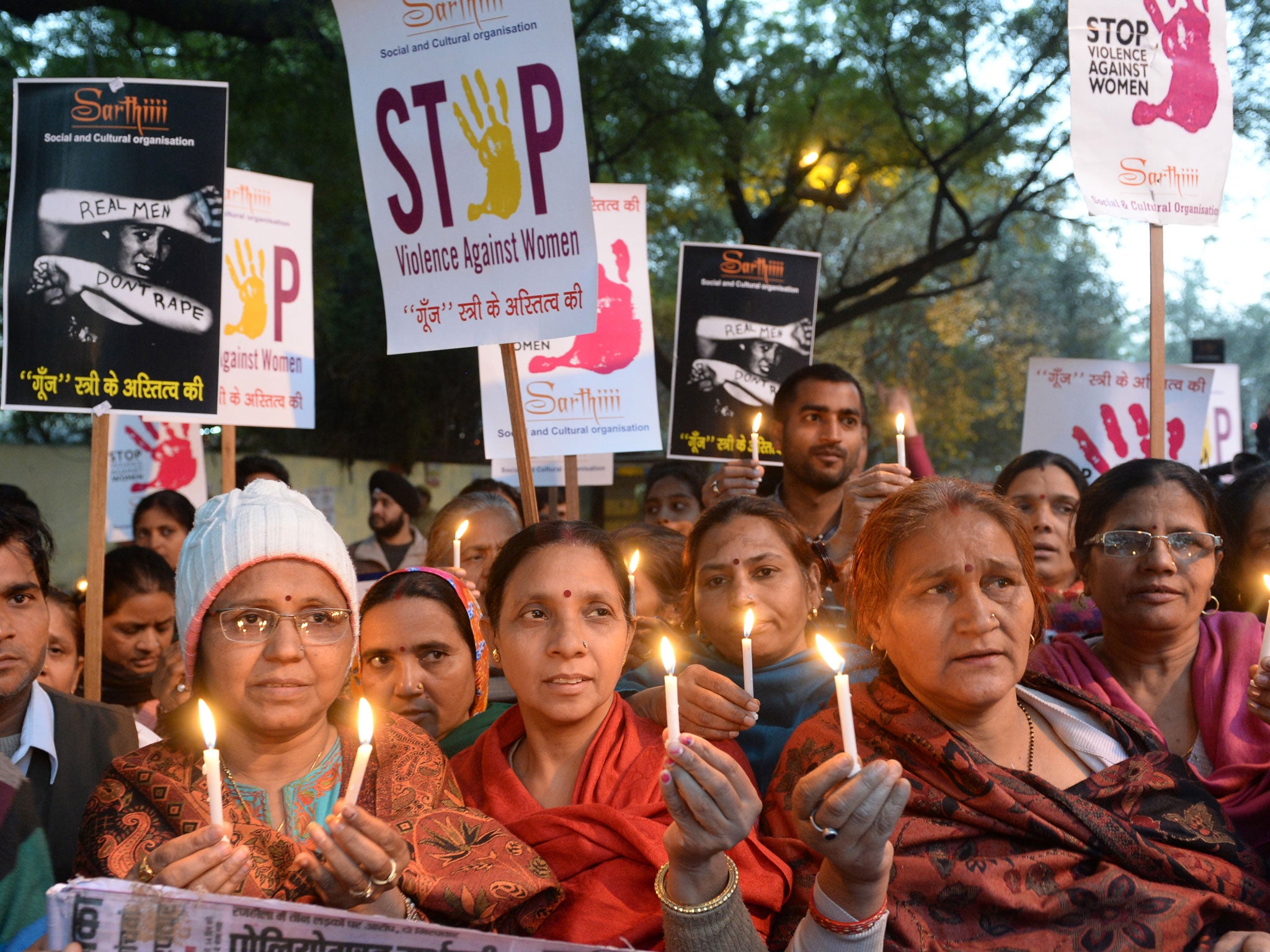India refuses to criminalise marital rape because of 'social issues and religious beliefs' in country
MP said marital rape could not be made a crime because of India's societal beliefs that 'marriage as a sacrament'

Your support helps us to tell the story
From reproductive rights to climate change to Big Tech, The Independent is on the ground when the story is developing. Whether it's investigating the financials of Elon Musk's pro-Trump PAC or producing our latest documentary, 'The A Word', which shines a light on the American women fighting for reproductive rights, we know how important it is to parse out the facts from the messaging.
At such a critical moment in US history, we need reporters on the ground. Your donation allows us to keep sending journalists to speak to both sides of the story.
The Independent is trusted by Americans across the entire political spectrum. And unlike many other quality news outlets, we choose not to lock Americans out of our reporting and analysis with paywalls. We believe quality journalism should be available to everyone, paid for by those who can afford it.
Your support makes all the difference.Human rights campaigners have condemned the Indian government's refusal to criminalise marital rape by claiming cultural and religious issues mean it cannot be applied to India.
Section 375 of India’s Penal Code defines rape as a crime, with the exception of a rape committed by a man against his wife.
M.K Kanimozhi, an MP for the DMK party, had asked whether the UN Committee on Elimination of Discrimination Against Women had recommended marital rape be criminalised in India, which it had, NDTV reports.
But a minister for the Government confirmed on Wednesday that it would not be considering the recommendation because of social and cultural factors that mean the international concept of marital rape “cannot be suitably applied in the Indian context”.
Haribhai Parathibhai Chaudhary, a Home Affairs minister, said in a written statement to India’s upper house of Parliament that these factors include the “level of education, illiteracy, poverty, myriad social customs and values and religious beliefs” in India.
He also counted “the mindset of the society to treat marriage as a sacrament”, in his response.
Ms Kanimozhi argued that while marriage is 'sacred' in Indian culture, it is no excuse for not protecting women from sexual abuse within their marriages.
“I accept that the institution of marriage is an integral part of our social structure. Many people across many faiths hold it sacred. But it has not stopped us from bringing the anti-dowry law or domestic violence legislation,” Ms Kanimozhi told The Hindu.
“Today, we are more receptive to women’s rights and issues. This is not against our culture. It is about protecting our women from violence and abuse."
Aruna Kashyap, a senior researcher for Human Rights Watch (HRW) Women’s Rights Division said the Government's "cavalier" response to the issue was "embarrassing".
She told The Independent: "It’s a shame that government officials are using the tradition card to defend men who sexually assault their wives - instead of firmly saying rape cannot and should not belong within marriage."
The Government's refusal to act provoked international outrage, with many expressing their frustrations on social media.
The Indian Government previously amended rape laws following protests over the brutal gang rape of a student in Delhi, but excluded marital rape in these reforms, according to Meenakshi Ganguly, HRW's South Asia Director.
"Rights activists have long said that while India has a strong law against domestic violence, women also suffer marital rape," she said. "It is sad and regressive that the government has chosen to argue that this issue is against Indian culture."
Join our commenting forum
Join thought-provoking conversations, follow other Independent readers and see their replies
Comments